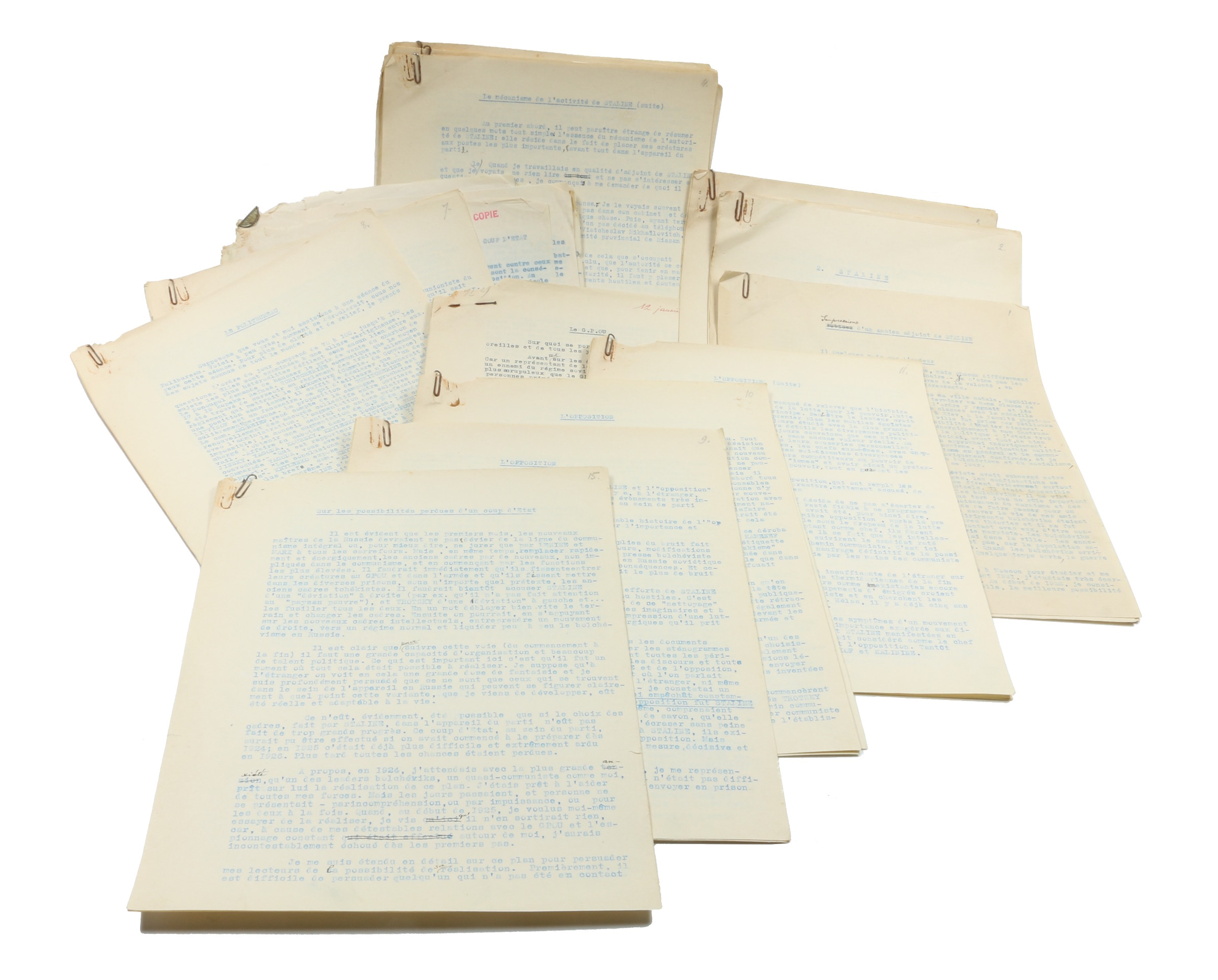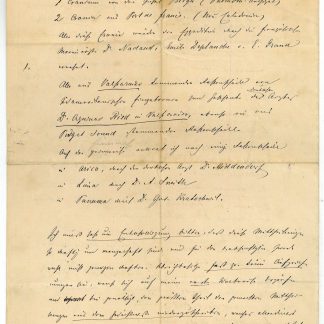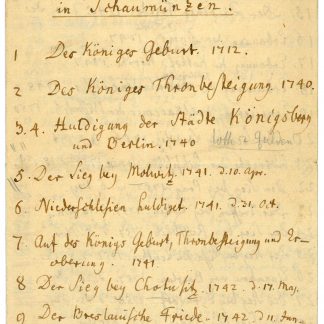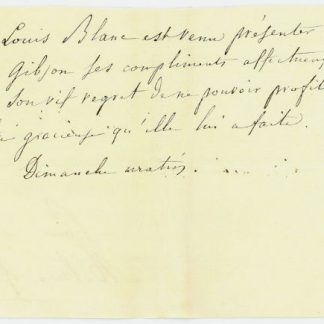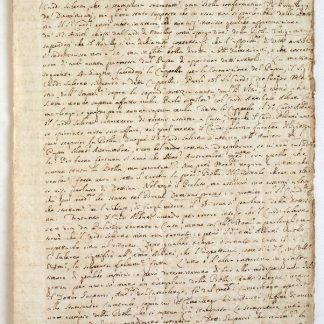A series of original typescripts containing one of the earliest authoritative accounts of the secret internal workings of Joseph Stalin's Kremlin
Boris Bazhanov's memoirs of Stalin's Kremlin: collection of original typescripts, predating all his published works.
Collection of original typescripts in French with occasional contemporary manuscript corrections in pen (A4 size, single-sided, total 74 pp.) divided into 19 separately titled sections: Section 1: 8 pp.; 2: 4 pp.; 3: 4 pp.; 4: 4 pp.; 5: 5 pp.; 6: 9 pp.; 7: 4 pp.; 8: 5 pp.; 9: 3 pp.; 10: 2 pp.; 11: 3 pp.; 12: 3 pp.; 13: 3 pp.; 14: 4 pp.; 15: 3 pp.; 16: 4 pp.; 17: 2 pp.; 18: 2 pp.; 19: 2 pp.; plus 1 mimeographed copy of a type-script in blue, marked 'Copie', 8 pp.; all sections fastened by original paperclips, pins or clasps (some staining, creasing and marginal tears, Section No. 16, first page, upper-right corner torn with loss to text).
€ 35,000.00
This historically important and fascinating series of original typescripts contains Boris Bazhanov's firsthand account of the internal workings of Joseph Stalin's Kremlin, being one of the earliest detailed and reliable accounts of the subject ever presented to a Western audience. Importantly, the typescripts predate Bazhanov's celebrated publications on the subject, and were created in Paris, in late 1928 and early 1929, barely six months after the author arrived in France, following his defection from the Soviet Union. From 1923 until the end of 1927, which saw the rise and consolidation of Stalin's leadership, Bazhanov was the personal secretary to the Soviet leader and one of his most trusted assistants. Critically, he was not only privy to Stalin's daily actions and private meetings, he was also the secretary of the Politburo, being tasked with recording the secret deliberations of the Soviet Union's governing body. However, Bazhanov became horrified by the murderous nature of Stalin's regime, and disaffected from Communism in general, and suddenly left his Soviet life behind by defecting across the Persian border, on New Years' Day 1928.
In the typescripts, Bazhanov recounts top secret and arresting information on Stalin, his interactions with his colleagues and rivals, and the operations of the Soviet government, all in a fashion far more detailed and accurate than any analysis recounted to date. Up to Bazhanov's defection, Westerners had virtually no useful intelligence on the internal workings of the Kremlin, their spy networks failing to embrace any insiders with proximity to the Politburo. Many contemporary analysts of the Soviet regime relied on heresay, if not outright fabrication. Bazhanov, while not himself a decisionmaker, was a silent witness at the very heart of the Kremlin. While he had certainly, by the time of his defection, developed an ardent anti-Stalinist and anti-Communist bias, he seems to have made every effort to be truthful in his recollections, and historians have subsequently backed up his acconts. Today Bazhanov remains one of the most authoritative sources on Stalin's leadership style, as well as early Soviet political history in general.
The various sections of the typescripts embrace several critically important topics, including the Russian Civil War and the Red Army; the GPU (the fearsome Soviet State Police); Bazhanov's biography and his place in the Kremlin; Stalin as a person and leader; Stalin's mechanisms of power and action; the Politburo; Stalin's Opposition; a coup supposedly planned against Stalin by Mikhail Frunze (but which was never realized), the opportunity cost of Frunze's coup having never reached fruition; and the Absolute Power of Stalin.
Detailed description available upon request.
Cf. Boris Bajanov, 'Avec Staline dans le Kremlin' [serially issues in 4 parts], Revue de France, 10th year, nos. 18, 19, 20 and 21 (1930); Boris Bajanov, Avec Staline dans le Kremlin (Paris: Les Éditions de France, 1930); Boris Bajanov, Bajanov révèle Staline. Souvenirs d'un ancien secrétaire de Staline (Paris: Gallimard, 1979); Boris Bazhanov (ed. David W. Doyle), Bazhanov and the Damnation of Stalin (Athens, OH: Ohio University Press, 1990).

